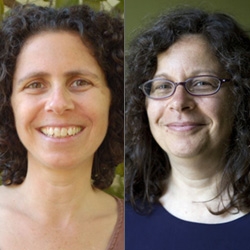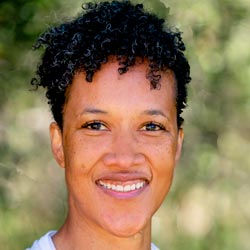

Search Results: practice
-
Three things can be helpful to practice when you want to contribute to someone caught in repetitive fears: self empathy, allowing grief for what you wish was true and is not, and empathy for their difficulty. You can also ask them what's helpful.
-
To shift reactivity by moving yourself from the position of experiencer to observer, name what’s happening. This can help you access other skills for managing reactivity. Also, create a strong emotional anchor.
-
Try this four step exercise for making connection requests to support understanding, and to learn what effect your words had on the listener. In this exercise you'll choose a situation where you have clarity about what outcome will really work for you (your solution request), but where you imagine your desired outcome may not work for the other person, and/or are not sure there is sufficient connection for mutual trust.
-
However indirectly expressed, any judgement or criticism is about the person's own thoughts, feelings, needs, and requests.This awareness can help you take people's comments less personally, and give you options: silent self-empathy, standing in your truth, contact and curiosity, and honest expression.
-
When a relationship has both differentiation and bonding you can express differences and unmet needs, and responsibly do your own thing without it being a threat to the bond with another. You honor each others choices. There's trust rather than a sense of resentful obligation. Needs-based negotiation is easier. See if you tend to emphasize only differentiation or bonding in your relationships. Imagine how to support the opposite.
-
Leading a Nonviolent Communication workshop is a good way to learn and practice NVC skills. Here are Shantigrabha and Gesine's seven top tips for facilitators.
-
Do you crave greater intimacy with your partner? Wish you had more ease for asking for what you want? Join relationship expert, Kelly Bryson in learning practical tips for building intimacy with your partner.
-
- Explore how gender power dynamics impact everyday interactions
- Learn how to navigate these complexities with curiosity and compassion
- Gain the skills to build inclusive personal and professional environments
- Contribute to a world where every voice matters!
-
Anger and resentment can signal unmet needs. Through mourning those needs and practicing self-empathy, we may let go of blame, embrace reality, and reclaim responsibility for fulfilling our own needs. This process may lead to emotional transformation through conscious reflection, and a new outlook.
-
Trainer Tip: Persistence is key in NVC. A small shift in approach can make a big difference.
-
- Increase your sense of connection and compassion, even in the heat of conflict
- Deepen your access to needs consciousness and the powerful energy of gratitude
- Learn how to make powerful requests that support the flow of connection
- Expand your self-empathy skills to help you shift away from reactivity
-
Dear friends,
Happy April Fool’s Day, which, according to Wikipedia, “is an annual custom on April 1st consisting of practical jokes and hoaxes.” I always think of my Mom on April Fool’s Day. She was mostly a stern person who scorned practical jokes, but on April Fool’s Day, she would play hoaxes on my father. One year, she sewed his boxer shorts’ fly shut. Another year, she reorganized all the drawers in their bedroom. Both of these really made me laugh because it was so out of character coming from her! This April 1st, I do not want to play a trick on anyone, but I do want...
-
Are you eager to translate your vision of a world where everyone’s needs matter into a tangible reality? Do you long to discover your unique role in responding to the challenges of our times? If, so join Miki for 12 sessions that will propel you on your way!
-
- Discover what is yours to do in response to our global crises
- Weave nonviolence more deeply into how you live and lead
- Receive ongoing support in how to be effective and alive while pursuing your highest goals
- Increase your capacity to face and mourn current reality as a source of greater choice and energy
- Be a part of transforming the legacy of scarcity, separation, and powerlessness into a livable future
-
Hi friends, My name is Itzel and I’m happy for this opportunity to share a bit about myself and how I came to teach NVC. I was an activist before I knew what the word meant. When I was a child, I often argued with the adults around me about what I thought was “right.” If I had a nickel for every time a grown-up said to me, “You should be a lawyer,” I probably would’ve collected enough money to pay for the law school education that I eventually got. I left my traditional legal career path after more than a decade to become a...
-
- Find intuitive guidance for bridging divides
- Connect to deep needs that have been habitually ignored
- Discharge the anxiety held in old, embodied reactions
- Make decisions and take actions that align with your values
- Cultivate resources for more enjoyably and more capably building relationships
-
How can we mobilize this insight in support of our own and others' healing? These recordings will shed light on how the social context into which we are born affects our experience, and what we can do about it at the individual level within the paradigm of nonviolence.
-
Ever since the Women's Movement of the 60s and 70s, we have known that "the personal is the political" – that individual suffering and challenges often have their source in the social systems within which we live.
How can we mobilize this insight in support of our own and others' healing?
Join Miki Kashtan for this course designed to shed light on how the social context into which we are born affects our experience, and what we can do about it at the individual level within the paradigm of nonviolence.
-
-
If you’ve ever dreaded attending a meeting – or watched in dismay as your group collapses into conflict – know that a methodology known as Convergent Facilitation offers you possible solutions. It’s based on one simple experience: that people come together at the level of their underlying principles, needs, aspirations, and dreams, not at the level of their surface positions.
Convergent Facilitation is a highly efficient decision-making process developed by Miki Kashtan from the principles of Nonviolent Communication. It enables you to look beneath the surface and find the essence of what’s important to different stakeholders, and bring it together into one set of principles that lead to proposals and ultimately decisions. As a result, it readily produces solutions and decisions that everyone can embrace.

Quick Links
Subscription Preferences
Stay In Touch!
Looking for ways to keep up with NVC Academy news, get special offers, free resources, or words of inspiration? Here are five ways to stay engaged:




















